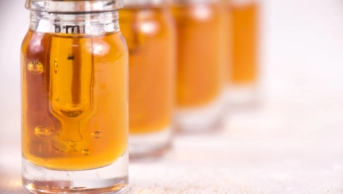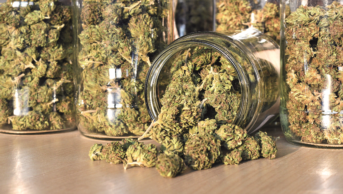
Shutterstock.com
Pharmacists in Poland have been given the go-ahead to make and distribute pharmaceutical products using cannabis after the Polish government made the drug legal for medicinal use.
The new regulations mean that Polish pharmacies will be allowed to manufacture medicines taken from imported cannabis plants, as long as they have been authorised by the country’s Office for the Registration of Medical Products.
According to the Polish Pharmaceutical Chamber, pharmacists will be given specific training on how to make drugs from cannabis, which can then be used to treat certain conditions including epilepsy, chronic pain and symptoms of multiple sclerosis (MS).
A spokesperson said that around 300,000 Polish patients could be given medical marijuana treatment, costing approximately £418 a month.
The UK Multiple Sclerosis Society is campaigning for a similar change in the law in the UK. A report by the charity published earlier this year found that 72% of people with MS thought that cannabis should be legalised for medicinal purposes.
The MS Society said it was “urgent” for people with MS to have access to Sativex, a cannabis spray, which is generally not available on the NHS and which is too expensive for most people to buy privately.
MS is the only condition that has a licensed treatment derived from cannabis, Sativex, but apart from in Wales no pricing agreement has been struck between the manufacturers and the relevant approval bodies.
Earlier this year the Royal Pharmaceutical Society (RPS) carried out a survey of pharmacists’ views on the medicinal use of cannabis
The RPS Pharmaceutical Science Expert Advisory Panel and others have proposed that the Home Office should move cannabis out of Schedule 1 of the Misuse of Drugs Regulations 2001.
As part of its survey, the RPS said: “A listing in Schedule 1 indicates that a drug has absolutely no therapeutic value, and re-scheduling the drug would enable scientists to more easily undertake research on the short- and long-term effects of cannabis use, and allow pharmacists and doctors to possess and supply the drug to their patients.”


